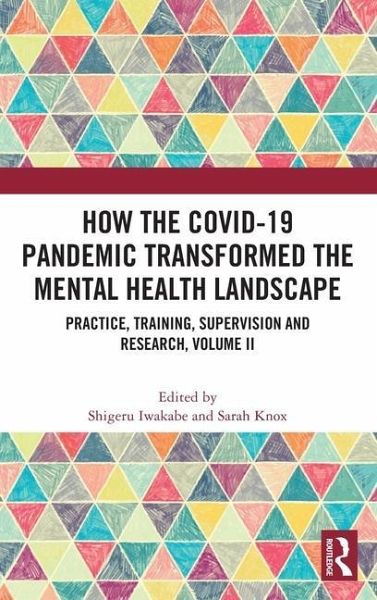
How the COVID-19 Pandemic Transformed the Mental Health Landscape
Practice, Training, Supervision and Research, Volume II
Herausgeber: Iwakabe, Shigeru; Knox, Sarah
Versandkostenfrei!
Versandfertig in 1-2 Wochen
150,99 €
inkl. MwSt.
Weitere Ausgaben:

PAYBACK Punkte
75 °P sammeln!
This book is a valuable historical record of how counselling psychologists responded to the COVID-19 pandemic around the globe. Volume II presents 17 chapters that address four major topic areas. The chapters in this volume were originally published as a special issue of Counselling Psychology Quarterly.














